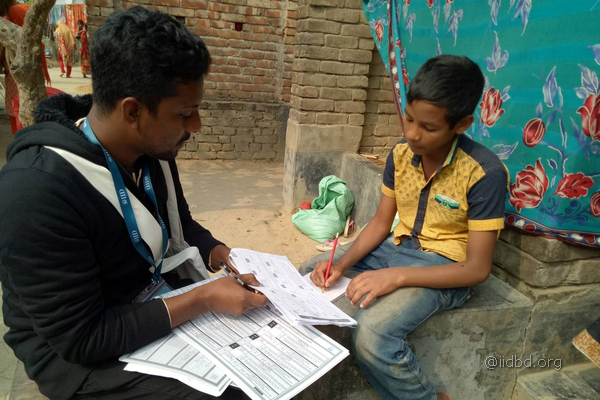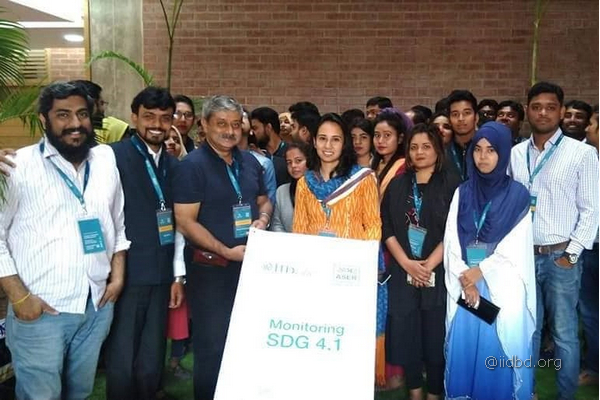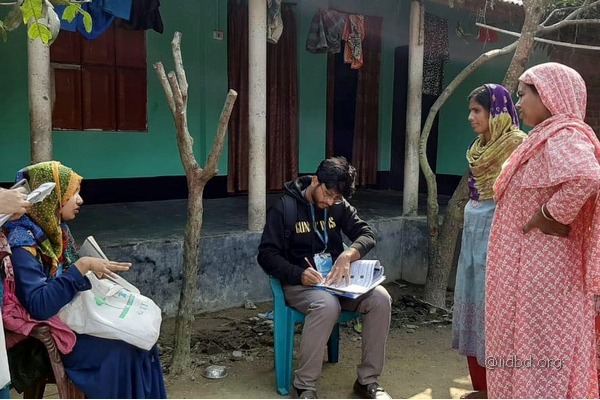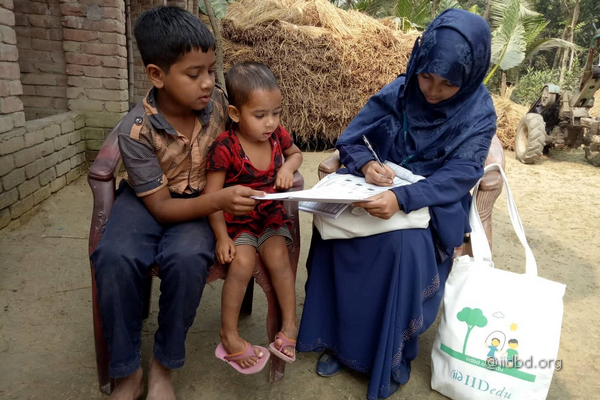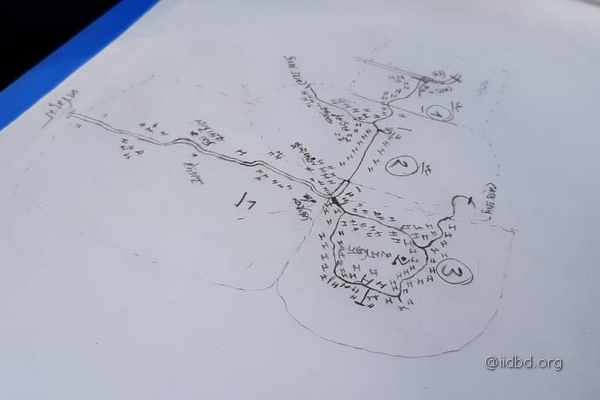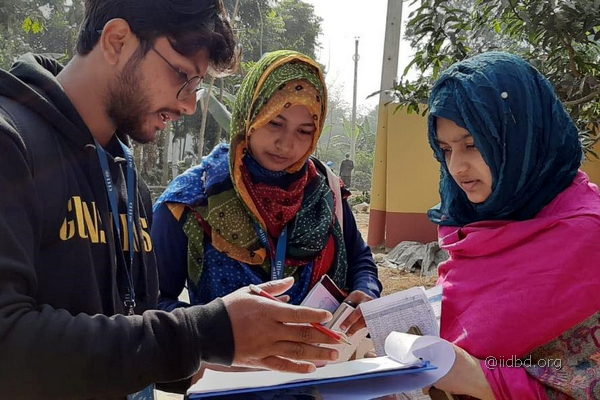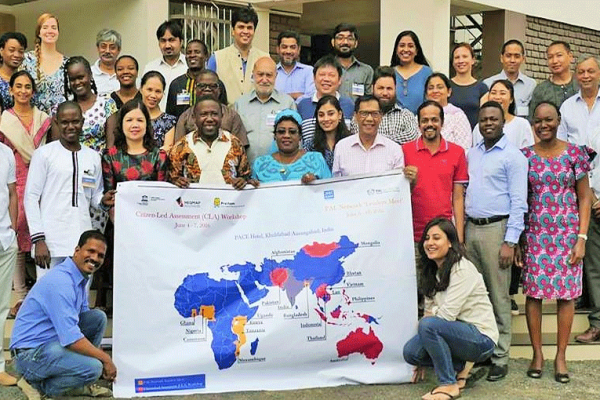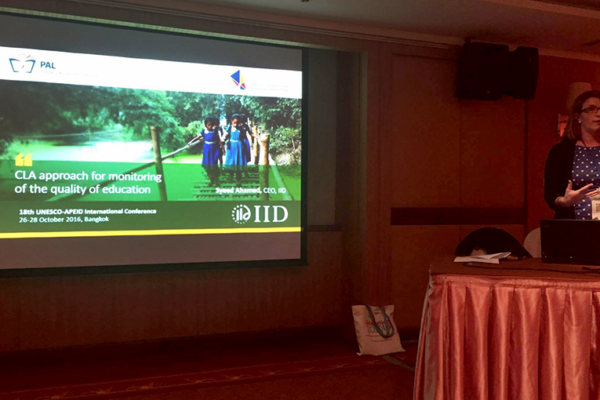The pilot assessment of IIDEdu suggests that numeracy and literacy are both required to achieve effective learning outcomes.
IIDedu, as the secretariat of ASER Bangladesh, is currently rolling out the nation-wide assessment in 1200 households at 60 villages of Jhenaidah district. This is the final phase of ICAN (International Common Assessment of Numeracy) of PAL Network. ASER Bangladesh has already conducted pilot-1 & pilot-2 of the assessment respectively at Cumilla and Jhenaidah earlier this year to prepare for the nation-wide aseessment. ICAN is an alternative solution for assessing all children (aged 5 to 16) across all of its member countries including those who are out of school. 13 PAL Network member countries, including Bangladesh, are evaluating this household based assessment.
The assessment consisted of 3 days prior training since 9th December, including 1 day field visit followed by 8 days of survey from 12th to 20th December 2019. A total of 30 volunteers and 4 coordinators carried out the assessment. A monitoring team of Ranajit Bhattacharyya & Sajal Ghosh from ASER India and Ketan Verma from PAL Network visited Jhenaidah for monitoring and training. The dedicated team of ASER Bangladesh diligently executed field monitoring, field recheck and desk recheck during assessment to ensure data quality. The Literacy test tools used in the assessment was developed following the tools of ASER India. Although the reading tool was contextualized according to local perspective.
ASER Bangladesh is hoping that the result of ICAN will contribute to policy shifts at national and international level and focus on finding solutions to help children learn better as well as assist the government in measuring progress of SDG 4.1 ensuring assessment of all children.

